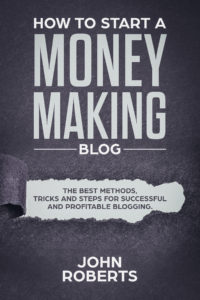How to find a Building Contractor
Finding an honest and reliable building contractor is very important for any flipper. For our discussion here I this can apply to a general contractor or if you are acting as your own general contractor then this applies to your sub-contractors.
Why do you need Building Contractors?
If you are a jack of all trades and plan on doing all the work yourself, congratulations on your skills, but if you plan on running a serious house flipping business I would strongly argue that your time is better spend managing deals, finding properties and supervising as opposed to doing the actual work on your houses. If you are a great tile person and want to do the bathroom tile, go for it. Just don’t let your timeline slip because you are determined to do the work yourself. Your timeline and the number of profitable deals you do are what is important. Not that you saved $300.00 in labor on a bathroom tile project that extended your time frame buy a week or caused you to miss the next deal.
plan on running a serious house flipping business I would strongly argue that your time is better spend managing deals, finding properties and supervising as opposed to doing the actual work on your houses. If you are a great tile person and want to do the bathroom tile, go for it. Just don’t let your timeline slip because you are determined to do the work yourself. Your timeline and the number of profitable deals you do are what is important. Not that you saved $300.00 in labor on a bathroom tile project that extended your time frame buy a week or caused you to miss the next deal.
Don’t fixate on the small line item things and miss the big ones. Find a good general contractor to manage your project. If you have the skills to be the general contractor and are only working one or two flips then perhaps you can go with just using sub-contractors. Assuming you do not have another full time job. It is hard to manage
>>> Build a SIX DIGIT Producing Website – FREE <<<
If you have a full time job we promise you do not have the time to manage your project effectively. You are free to try but we think after your first flip you will agree with us.
How do you find a Good Building Contractor?
The best way is through a personal reference. Either someone you, family member or friend has used before. Even better would be from another flipper you has used the contractor. If you do not know any other real estate flippers or real estate investors you can meet them a local real estate investment groups. Most towns of my size have at least one group.
Another way is to speak with a realtor you trust. Find out which general contractors or sub-contractors they have used in the past. You can also ask your realtor friend for names of other house flippers in the area that you could contact and ask for a contractor reference. Of course, when dealing with other house flippers they might not want to steer you onto a good contractor that they regularly use. It is not that they worry about your competing with them in the flipping market, it is more likely they are worried that if you tie up their best contractor then the contractor might not have time for them.
Generally, other real estate investors are very helpful. I have found that it is almost like a family and they help each other. Of course, if you are standing across from another real estate investor at an auction, do not expect any help while you two are bidding against each other. After the auction, then everything will get back to normal in the real estate family.
You can also check websites such as Angie’s List and Home Advisor, these types of sites can provide you with a good starting point to get names of potential contractors for you to use. Many times they will also have references on the site, but I do not always trust the ratings on a site like that. Obviously, the more ratings they have and the more IN DEPTH those review are the more likely they are accurate. But always do your own research.
>>>> Click HERE to Find a Cheap House to Flip <<<<
If all else fails, there is always the Yellow Pages/Phone Book. You can use this resource to compile a list of potential contractor names that you can research further.
Once you Decide on a Contractor then What?
I always like to start with the Better Business Bureau to see what information they have on my potential contractors. Notice I said contractors here, at this point I am still in the interview phase trying to decide which contractor is the best. Do not just pick one and go. Take the time to go through the process of selecting the right one.
I try to get at least three contractors to start with. I interview each of them and ask them a lot of questions about their previous jobs and I ask for references, which I will check out.
During the initial interview process I make sure they have liability insurance and insurance to cover their employees and sub-contractors in case of injury. I also prefer that they have actual employee’s not casual labor off the street if they are doing the work themselves. Same goes for any sub-contractors they might use.
In addition to insurance, make sure they have the proper licenses. You should get copies of their licenses and insurance for your records.
I give them a written list of what I want done and ask them to add things they think might be issues that I have missed. Then I expect them to give me a written bid as soon as possible.
Pay attention to little things during the interview process like how organized they are and if they ask relevant questions. Do they seem like they know what they are doing? Do they act professional? Were they on time for the interview? There are a lot of general observations we can make that will help us determine an overall view of the potential building contractor.
Once I have received the bids I review the contractor as a whole. This includes their bids and references. I do not want to base my decision just on price. A contractor might come in with a great bid but have a number of bad references.
I would expect the bids to be in a fairly close range. If one is a lot higher or lower I want to ask questions to determine why.
 Once I have found the contractor I want, then I want to sign a detailed contract containing the work to be done and the time frame for completion. It is also a plus to have penalties for missing the completion date. It WILL cost you money if your project goes over time; therefore I am a firm believer that the general contractor should bear some of that financial risk.
Once I have found the contractor I want, then I want to sign a detailed contract containing the work to be done and the time frame for completion. It is also a plus to have penalties for missing the completion date. It WILL cost you money if your project goes over time; therefore I am a firm believer that the general contractor should bear some of that financial risk.
Be sure to include a payout schedule in the contact, that will keep you out of arguments as the project continues. I like to start at about 10% up front if possible and prefer to hold AT LEAST the remaining 25% until the project is finished. These numbers are negotiable and will depend on the contractor. If it is a contractor I use frequently I am much more willing to pay out more sooner.
Potential warning signs of a bad contractor.
- No references – or bad references obviously.
- Wants more than 30% of the money up front.
- Refuses a detailed contract.
- Their bid was substantially lower than the other bids.
- Refuses a penalty for going over completion time.
- They use only or mostly off the street day laborers.
- They seem disorganized.
- Late for initial interview.
- They can start immediately. I always wonder why they are not busy.
- They are just beginning as a contractor.
Written by: Alexander Monroe
Originally Posted on: investmentpropertyadvice.net



